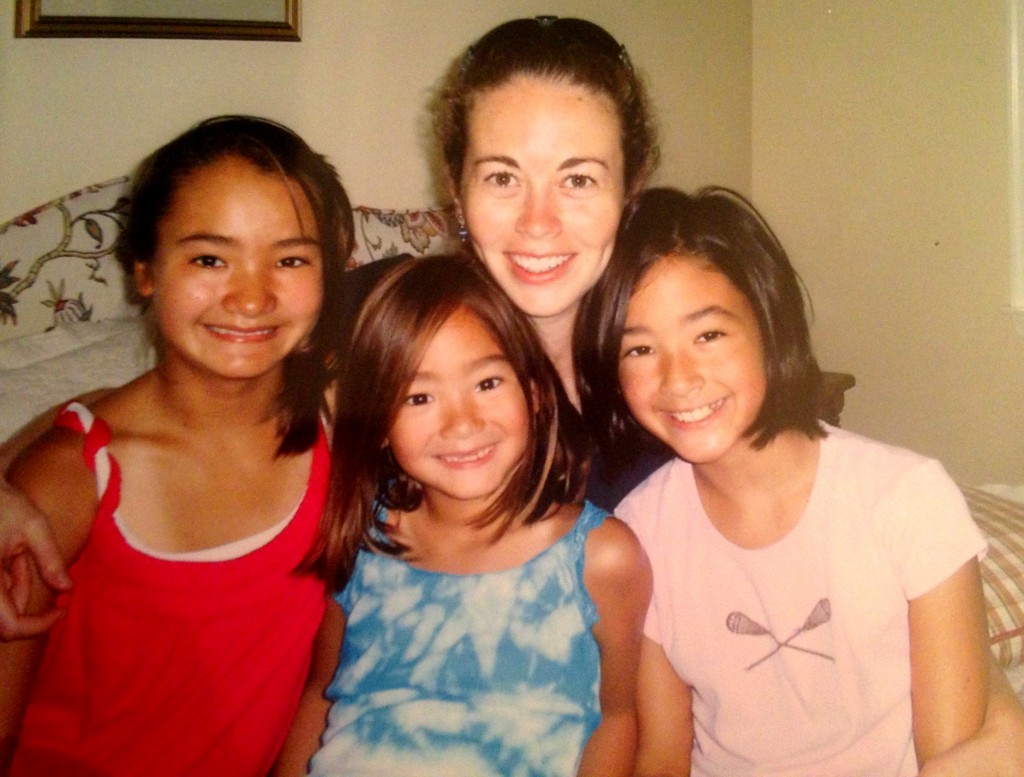When You Can't Run the Race
Some stories don’t receive as much press as others, but these stories might be more significant than the ones with the happy endings.
When my friend Sarah told me that she wanted to run a marathon, she not only extended the invitation to me, but also to our good friend, Christine. Let me clarify that Sarah’s request was more of a demand than an invitation as in “You all are running a marathon with me next October.” While I groaned and complained and explained to Sarah how I just wasn’t sure I could do it, Christine immediately jumped on board and said, “Sure! I’ll run!” Which then caused me to scowl bit and say, “Okkkkk. I will too.”
Of the three of us, Christine was the “runner.” She ran in college and coached cross country; she just knew what she was doing. And she was fast. She intentionally slowed her pace most days in order to enjoy a run with Sarah and me.
So began the marathon training days. We met at 5:30am on Saturday mornings at the reservoir and talked our way through hours of running. Memories of those early morning runs still bring me a deep smile. When you run for three hours with someone, you get to know them well. You talk about every topic under the sun, you laugh a lot, you encourage each other to keep running, even when you’re having one of those horrible, lead-leg mornings, and you learn to accept gross running habits like spitting.
Christine kept us organized in our training. She knew which water bottle packs were the best, and she offered stretching suggestions when injuries plagued us; 11 years younger than Sarah and me, Christine put up with a lot of questions that probably made her think she had three moms instead of one.
A few weeks before the race, Christine thought it would be helpful for the three of us to run a twenty mile run on the actual race course. She mapped out our route and figured out where to park two cars for the start and finish; when I came down with a horrible stomach bug ten miles into the run, Christine was the one who flagged down a cab, pulled ten dollars from her pocket, and convinced the driver to get me to my car so I wouldn’t have to walk ten miles to get there. She was always prepared, always encouraging, always reliable.
Nine days before the race, Christine rolled her ankle while running an easy three mile run. She stared at her swollen, purple foot and knew she could not run the marathon with us. When she shared this news, we couldn’t believe it. I kept telling her she could ice it all week and maybe it wasn’t as bad as it seemed so that she could still run with us.
It was as bad as it seemed.
It didn’t seem right that Christine wasn’t going to be a part of this race with us. She was in much better shape than Sarah and me, and she was the real runner; she had put in the hours of training just like we had. It just didn’t seem fair.
What do we do when life seems to knock us out of the race? When circumstances seem unfair and our hard work isn’t enough? Where is the hope in that?
I think the lesson Christine taught me is that even though it seemed like she was out of the race, she really wasn’t. At about mile 10 on race day, Sarah and I spotted Christine holding up a poster with our names on it and an inside joke that she knew would make us laugh. We ran over to the sidewalk and hugged her, thankful to see our sweet friend.
She cheered louder than anyone when we finished and even though we all grieved that we hadn’t been able to finish together, I knew she was genuinely happy for Sarah and me.
Two nights later, she planned for the three of us to have dinner, to talk about the months of training, and to celebrate the end of the race.
Thirteen years later, I have no idea why Christine wasn’t allowed to run the marathon, but her willingness to stay with us in the process gives me hope. She taught me a lot about how to handle adversity well, how to press on when life is unfair, and that it is ok to grieve and express disappointment when something sidelines us. Her injury was part of the whole story and we were able to embrace that together.

